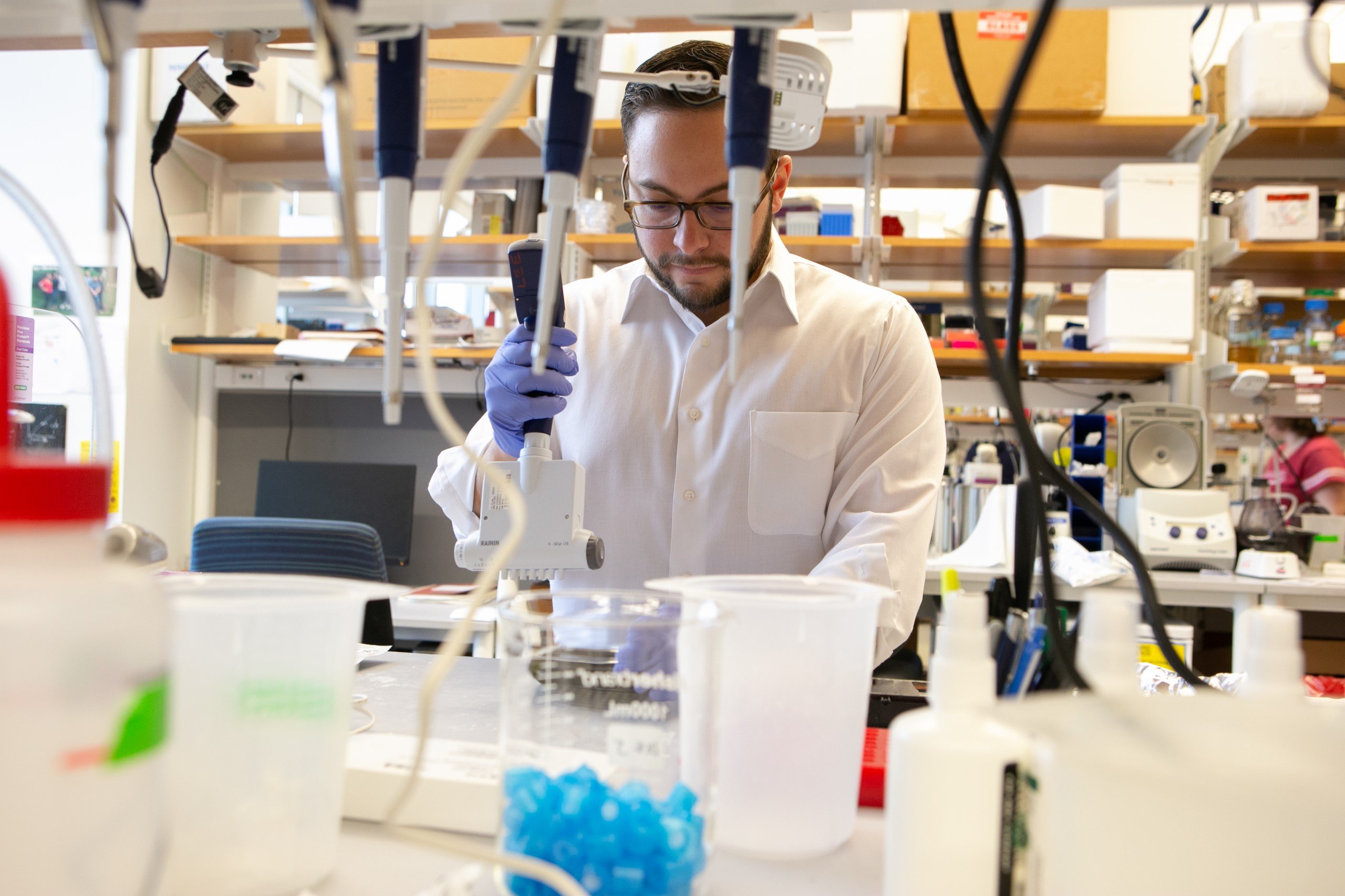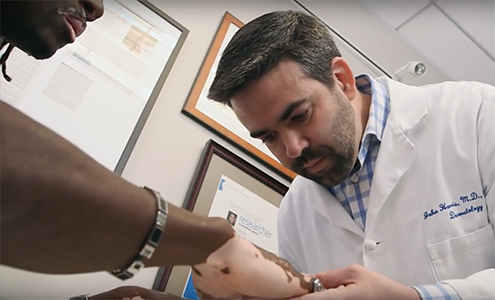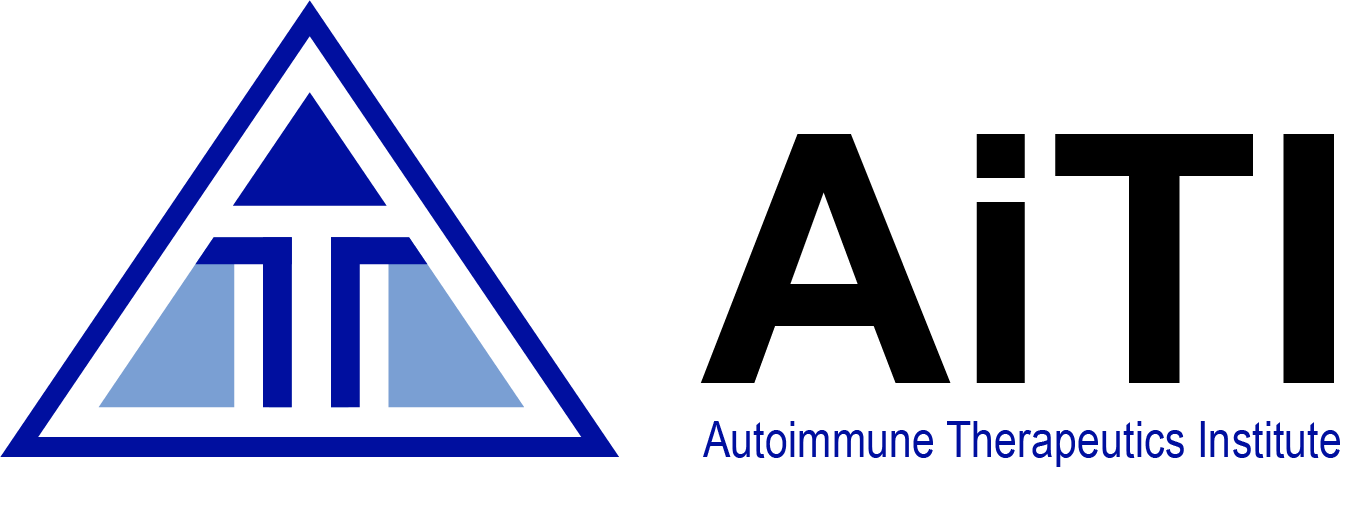About AiTI
The AiTI is an academic-industry hybrid organization focused on mechanistic understanding, biomarker discovery, functional genomics, and therapeutic development for autoimmune and inflammatory diseases. To accomplish this goal, we seamlessly integrate basic, translational, and clinical research techniques to acquire clinically relevant knowledge of human immune-mediated diseases that is leveraged to create new targeted treatments. Our foundation and forward-looking approach are informed by rich datasets created directly from human tissues that are affected by autoimmunity and other immune-mediated diseases.
This approach is modeled after vitiligo, a disease that has made rapid progress toward new therapeutics in just the past 15 years, after a 3400-year hiatus lacking innovation. By combining basic research discoveries in mice with high-resolution multiomics analysis of human skin affected by the disease, venture-funded innovations in drug development, and clinical trials to test new treatments, the first drug to treat vitiligo was FDA-approved in 2022, and many more are being tested.
"The skin serves as an observable and accessible window into mechanisms of human autoimmunity, providing new opportunity for deep understanding that leads to new treatments"
- Dr. John E Harris

Importantly, the translational strategies and data that we have generated are not limited to just a few diseases, or even just skin diseases. Existing data strongly suggest that autoimmune and inflammatory diseases share a similar pathogenesis, even across organ systems. This observation is supported by genomic data that reveal common risk alleles as well as coinheritance of immune-mediated diseases among patients and their family members. For example, patients with vitiligo and their family members are at a much higher risk of developing T1D, thyroiditis, pernicious anemia, Addison’s disease, and others. Patients with cutaneous lupus have an elevated risk of systemic organ damage, and those with psoriasis develop arthritis. Thus, the data generated from skin diseases provides a platform on which to build further research in diseases that are more difficult to study. In fact, data from skin provides a template that we can use to fill in gaps in understanding other diseases, identifying drug targets that could be tested through small mechanistic trials in these other diseases as well. This will be our strategy, to study autoimmune and other immune-mediated diseases of the skin, as well as less-accessible organs when possible, through sample collection, data sharing, and translation of existing data to fill gaps in knowledge.
 However, we do not work in a vacuum. In fact, we synergize with other individuals and groups to bolster and advance our discoveries into the hands of our patients in the clinic. This is critical to our success in rapidly translating disease knowledge into new treatments for human disease. Our collaborators include basic scientists exposing immune pathways that drive autoimmunity, create novel therapeutic molecules, and uncover new strategies to deliver these medicines to organs affected by disease. We work closely with scientists conducting cutting edge mechanistic basic research, so we are always at the forefront of signaling pathways and cellular communications that drive our diseases. We work directly with other front-line clinicians who care for patients with autoimmunity, so that we are aware of the unmet patient need as well as clinically relevant questions that must be addressed to advance new therapeutics. We affiliate with the UMass Chan Advanced Therapeutics Cluster, including the RNA Therapeutics Institute (RNAi drug development), Gene Therapy Institute (for targeted tissue delivery), Small Molecule Screening Facility (for small molecule therapeutics), Neurotherapeutics Institute, CTSA, BRIDGE, and biomarker discovery platform (InBioC), which provide in house expertise and resources for drug development. We engage with leaders in venture capital and industry to outline in detail how to advance our discoveries into new treatments, prioritizing targets, therapeutic strategies, and unmet need.
However, we do not work in a vacuum. In fact, we synergize with other individuals and groups to bolster and advance our discoveries into the hands of our patients in the clinic. This is critical to our success in rapidly translating disease knowledge into new treatments for human disease. Our collaborators include basic scientists exposing immune pathways that drive autoimmunity, create novel therapeutic molecules, and uncover new strategies to deliver these medicines to organs affected by disease. We work closely with scientists conducting cutting edge mechanistic basic research, so we are always at the forefront of signaling pathways and cellular communications that drive our diseases. We work directly with other front-line clinicians who care for patients with autoimmunity, so that we are aware of the unmet patient need as well as clinically relevant questions that must be addressed to advance new therapeutics. We affiliate with the UMass Chan Advanced Therapeutics Cluster, including the RNA Therapeutics Institute (RNAi drug development), Gene Therapy Institute (for targeted tissue delivery), Small Molecule Screening Facility (for small molecule therapeutics), Neurotherapeutics Institute, CTSA, BRIDGE, and biomarker discovery platform (InBioC), which provide in house expertise and resources for drug development. We engage with leaders in venture capital and industry to outline in detail how to advance our discoveries into new treatments, prioritizing targets, therapeutic strategies, and unmet need.
In summary, we are innovative scientists, caring clinicians, and experienced entrepreneurs. We and our collaborators uncover foundational knowledge of disease, create new drug delivery systems, and know how to prioritize and develop new treatments. We have created an Institute that is taking a new path toward therapeutic discovery and development, and we are excited about it!
